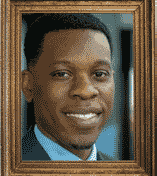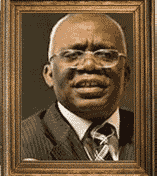We have complained about and analyzed our problems long enough. It is now time for young people
and new-breed politicians to elevate the discussion from mere rhetoric, sensationalism and
fantasy to apt understanding of smart politics and solutions.
This book presents facts and history to explain election-winning strategies and policy
priorities. Let’s not kid ourselves—most of our traditional politicians will remain corruptly
oppressive, and rebellion or revolt will not succeed in Nigeria.
So we only have two options: work hard to liberate ourselves from the oppressors by defeating
them in elections or give up in despair. If we choose liberation, it will take us several years,
but we can gradually start by unifying our efforts and learning the required political skills.
This book will be enlightening to non-Nigerians, but I hope it will inspire Nigerians to urgent
action.
Engr. Debo Onifade has a master’s degree in engineering management from Tufts University (USA)
and a bachelor’s in electrical engineering from the University of Ibadan (Nigeria). He has
published essays and articles in national newspapers and regularly features on national TV
platforms to discuss the economy, technology and policies. Some of his essays have won him
awards inside and outside Nigeria, including an IEEE prize at the historic Bletchley Park, UK in
2004, a Professor Femi Osofisan prize at the University of Ibadan in 1999, and a National
Orientation Agency Award in Abeokuta, Nigeria in 1998. He is also an entrepreneur, soccer coach,
policy enthusiast and historian.
Debo Onifade is the CEO of DelonApps, a global outsourcing and software provider based out of
Nigeria and the United States. He is a Senior Member of the IEEE, an experienced and certified
software engineering and digital product leader, a member of the Nigerian Society of Engineers,
and a registered electrical engineer.
Debo's political ideology does not fit neatly into conservative or liberal categories. He
advocates for free markets but firmly believes that the government must prioritize the poor over
the middle class, and especially over the wealthy. He sees the key to solving Nigeria’s
challenges in job creation and human capital development through quality, affordable education
and healthcare. This belief drives much of his work, with a strong focus on job creation across
his writings, presentations, and business ventures.


